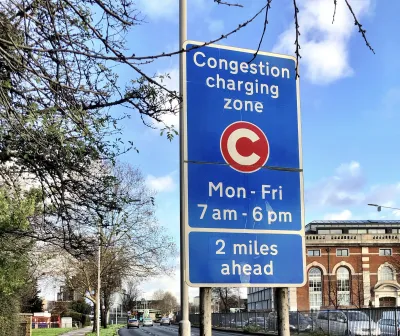Writing from London in an Op-Ed for Seattle’s Crosscut, Chuck Wolfe argues for a contextual approach to a much-touted search for transportation equity.

In cities like Seattle, advocates of congestion pricing—tolling those who drive into a designated downtown city zone—often point to London and Stockholm, two cities with robust transportation infrastructure, where the concept was initially unpopular, but now is an accepted fact of life.
In the face of Seattle’s ongoing consideration of congestion pricing tools, Wolfe wonders how this reasoning applies to Seattle and the Puget Sound region in 2019. He suggests greater similarity between Seattle and other cities where congestion pricing is currently on hold.
Now living and working in London and Stockholm, Wolfe counsels against summary comparisons. He contends that implementation of congestion pricing needs to make sense for Seattle, its particular geography, demography, transit service and public access issues, as well as work equitably for city and regional residents: "In Seattle, the deeper issue is how to align policy with local realities, without prematurely borrowing practices from elsewhere along the way."
FULL STORY: What London and Stockholm can teach Seattle about congestion pricing

National Parks Layoffs Will Cause Communities to Lose Billions
Thousands of essential park workers were laid off this week, just before the busy spring break season.

Retro-silient?: America’s First “Eco-burb,” The Woodlands Turns 50
A master-planned community north of Houston offers lessons on green infrastructure and resilient design, but falls short of its founder’s lofty affordability and walkability goals.

Delivering for America Plan Will Downgrade Mail Service in at Least 49.5 Percent of Zip Codes
Republican and Democrat lawmakers criticize the plan for its disproportionate negative impact on rural communities.

Test News Post 1
This is a summary

Test News Headline 46
Test for the image on the front page.

Balancing Bombs and Butterflies: How the National Guard Protects a Rare Species
The National Guard at Fort Indiantown Gap uses GIS technology and land management strategies to balance military training with conservation efforts, ensuring the survival of the rare eastern regal fritillary butterfly.
Urban Design for Planners 1: Software Tools
This six-course series explores essential urban design concepts using open source software and equips planners with the tools they need to participate fully in the urban design process.
Planning for Universal Design
Learn the tools for implementing Universal Design in planning regulations.
EMC Planning Group, Inc.
Planetizen
Planetizen
Mpact (formerly Rail~Volution)
Great Falls Development Authority, Inc.
HUDs Office of Policy Development and Research
NYU Wagner Graduate School of Public Service




























